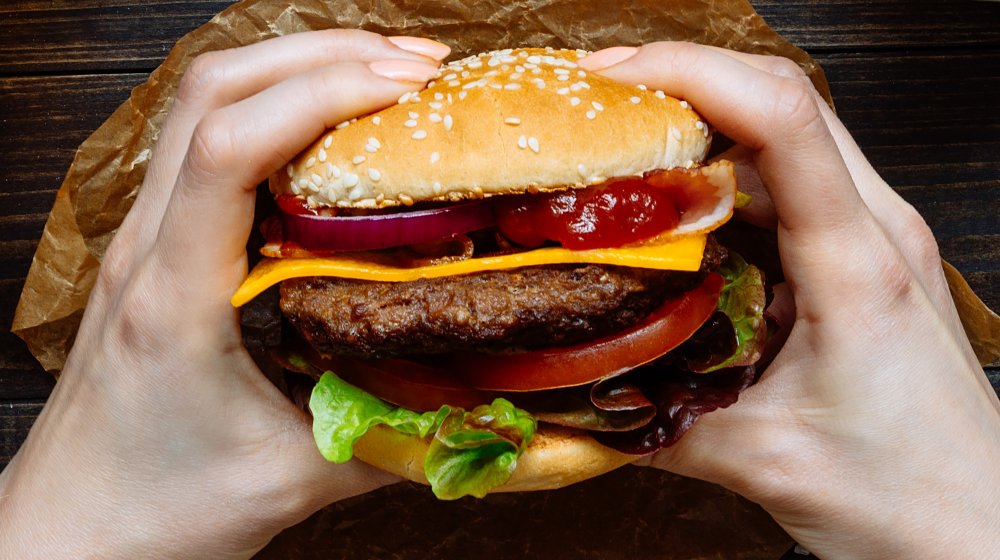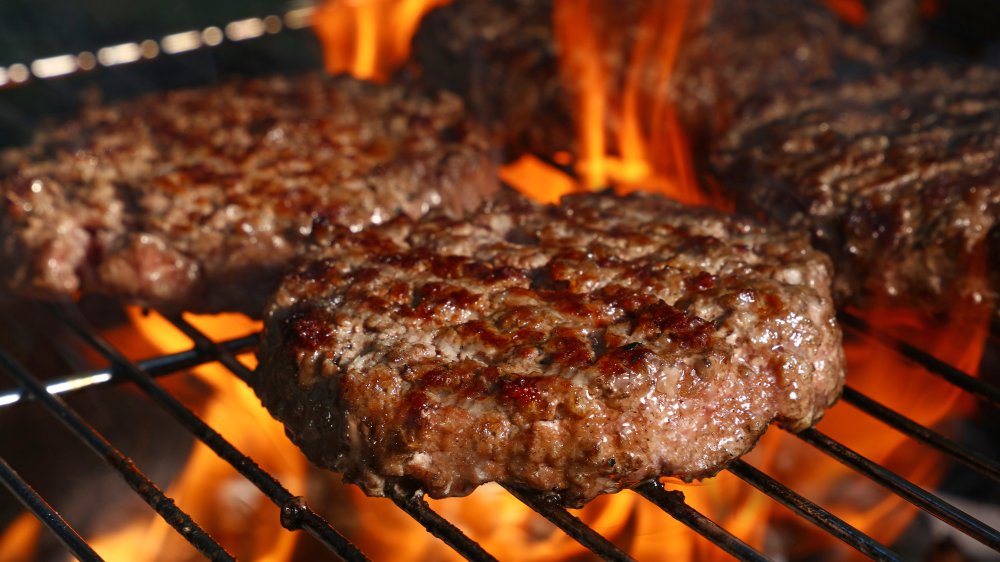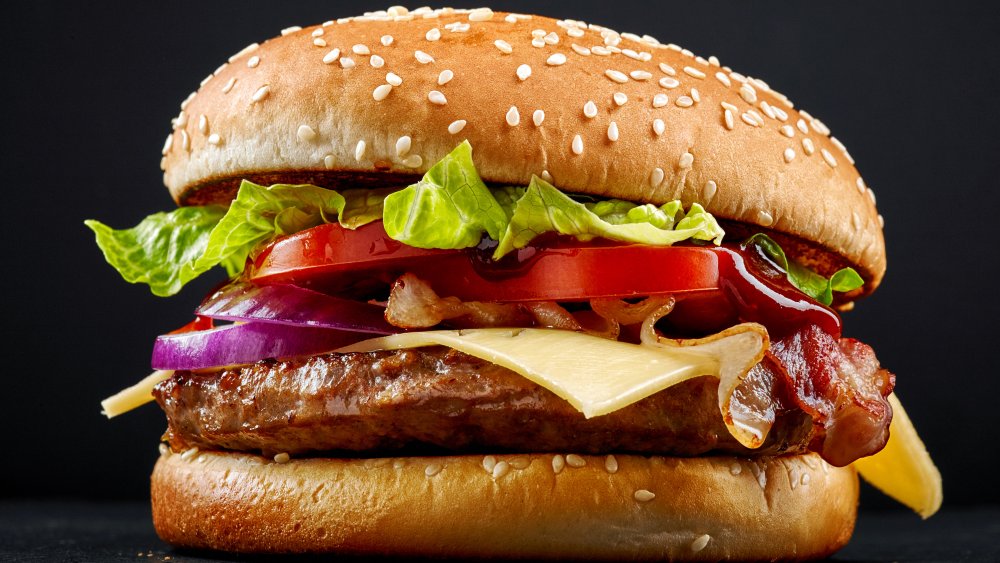The Secret To Juicy Burgers You've Been Missing Your Whole Life
There's something about a juicy burger that can stir up an appetite anytime of day or night. Whether it's a thin patty topped with a runny egg at brunch, a cheese-laden, homemade In-N-Out copycat, or a big, delicious monster of a burger you grill up for dinner with friends, the goal in all your burger endeavors is the same: juiciness. According to The Kitchn, the secret to juicy burgers lies in a combo of two important factors: temperature and time.
It's easy to think you can just fire up the grill, beer in one hand, spatula in the other, and delicious burgers will appear. But, if you want a burger that requires a napkin or two when you eat it (and you do), you'll want to give those burgers a little extra attention. Focus on the temperature of your grill and the amount of time your burgers spend on it. Here's how.
Prepare your grill correctly for juicy burgers
First things first, you need to light that fire. If you're using a gas grill, go for medium-high heat. The temptation is to always grill everything on high heat — it's outdoor cooking, after all, why be precious about it? Well, unless you want a bone-dry patty that you have to chew forever before swallowing, reign in those caveman instincts and heat your grill to medium-high. If you're using a charcoal grill, fill it with an even layer of two to three quarts of lit coals. With your heat source primed and ready, you can get those yummy patties on the grill.
There are some moves you can throw in at this point for extra credit, if you choose. Gordon Ramsay employs every cook's best friend, butter, to achieve a crispy crust and maintain a juicy center in his burgers. Another tip? Chef Adam Perry Lang told Thrillist, "The most common mistake people make when cooking burgers on a grill is moving them too quickly." So, once your patties are in place, whether you're using butter or not, resist the urge to flip too soon.
How long you grill your burgers matters
Timing is everything. You've got your grill at the perfect temperature, but there's one more thing to consider here. A sure way to thwart juiciness and end up with a tough and chewy burger is to overcook it. However, there's no hall pass for undercooked ground beef, either. Fine Cooking explains that the bacteria on a piece of meat lives on the surface. When meat is ground, it disperses the bacteria throughout the meat, meaning you'll need to cook it thoroughly in order to kill all those cooties.
The FDA recommends cooking burgers to 160 degrees but, since harmful bacteria is destroyed at 140 degrees, 150 degrees can be a nice sweet spot, according to Fine Cooking. That medium-well temp will maintain your burger's juicy goodness and prevent undesirable bacteria from hanging around. On a grill that's humming away on medium-high, your burgers will reach 150 degrees in about four minutes; use a meat thermometer to make sure.
Basically, all that stands between you and the juiciest burger of your life is a properly heated grill and four minutes. Get your napkins ready!


